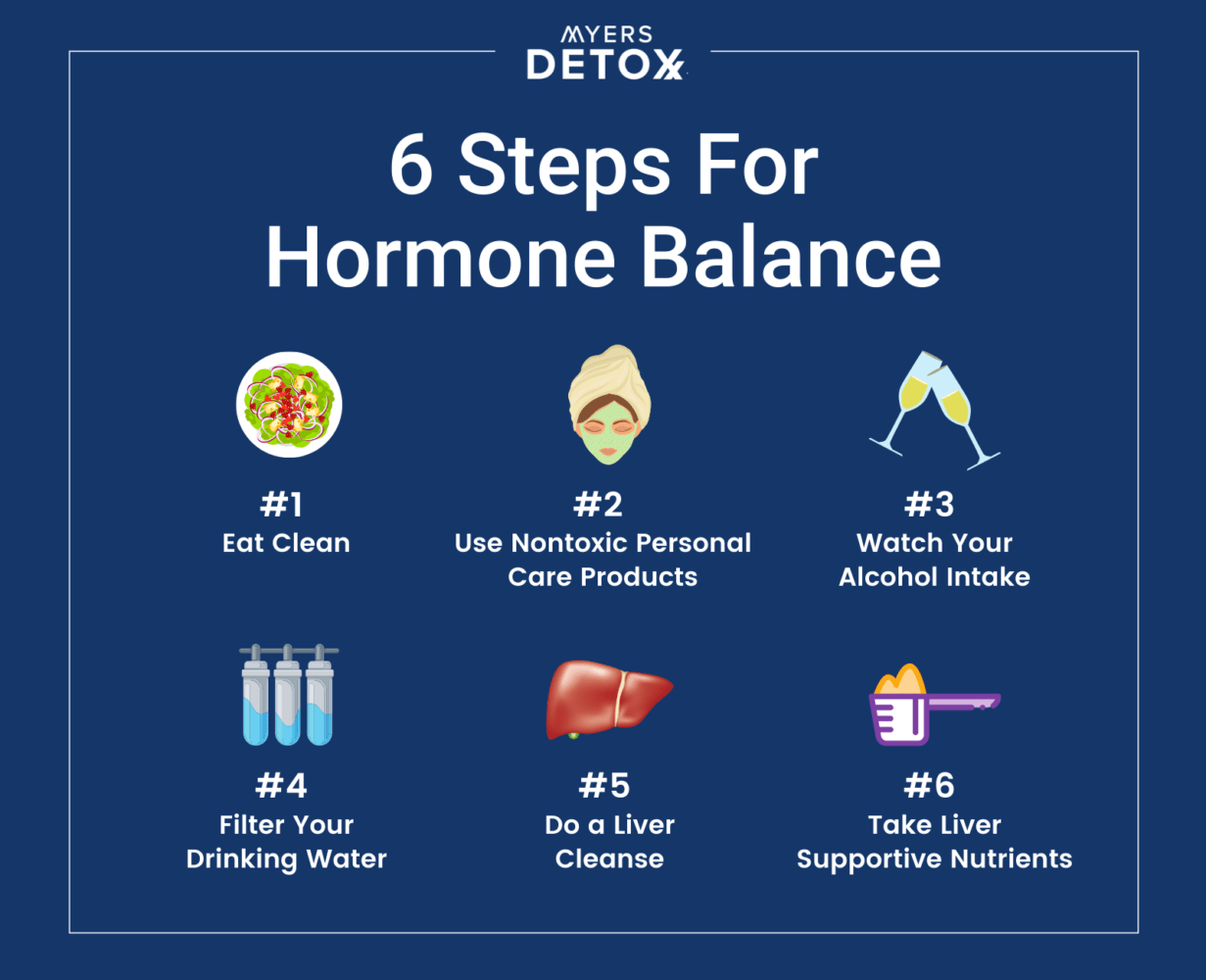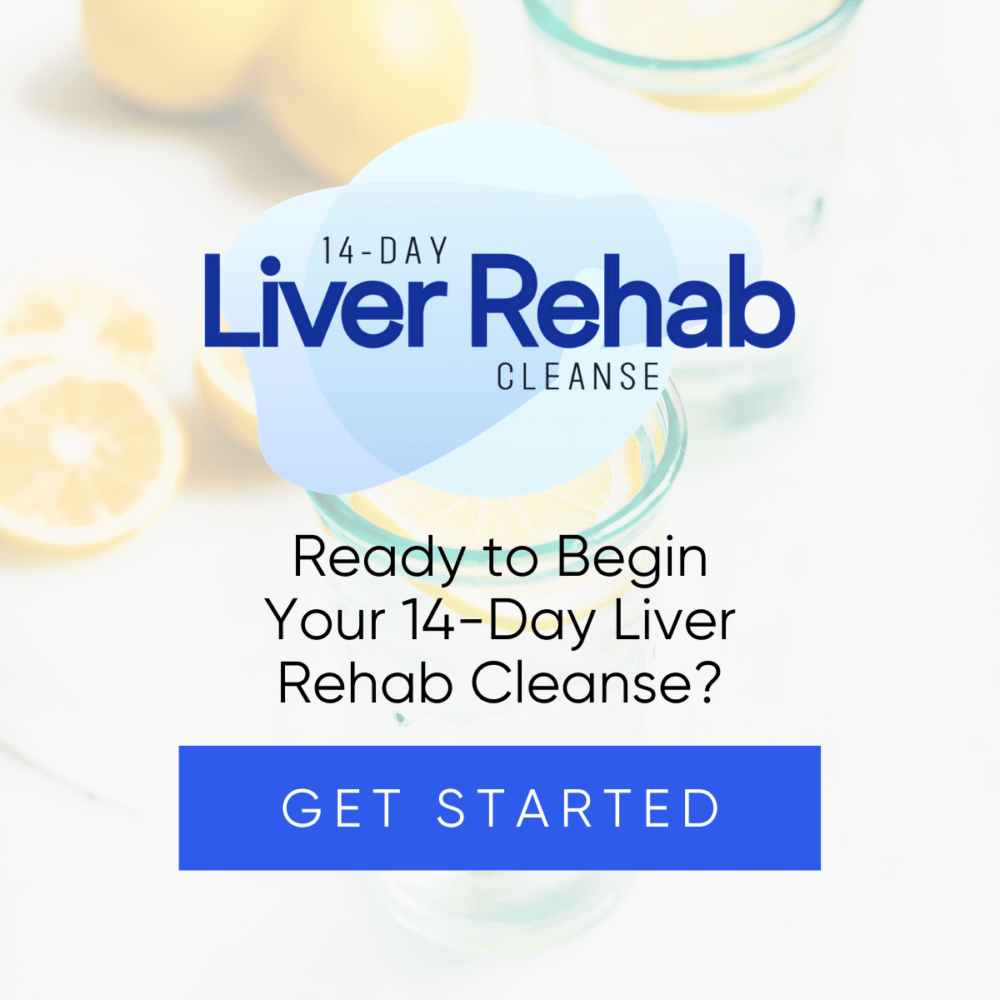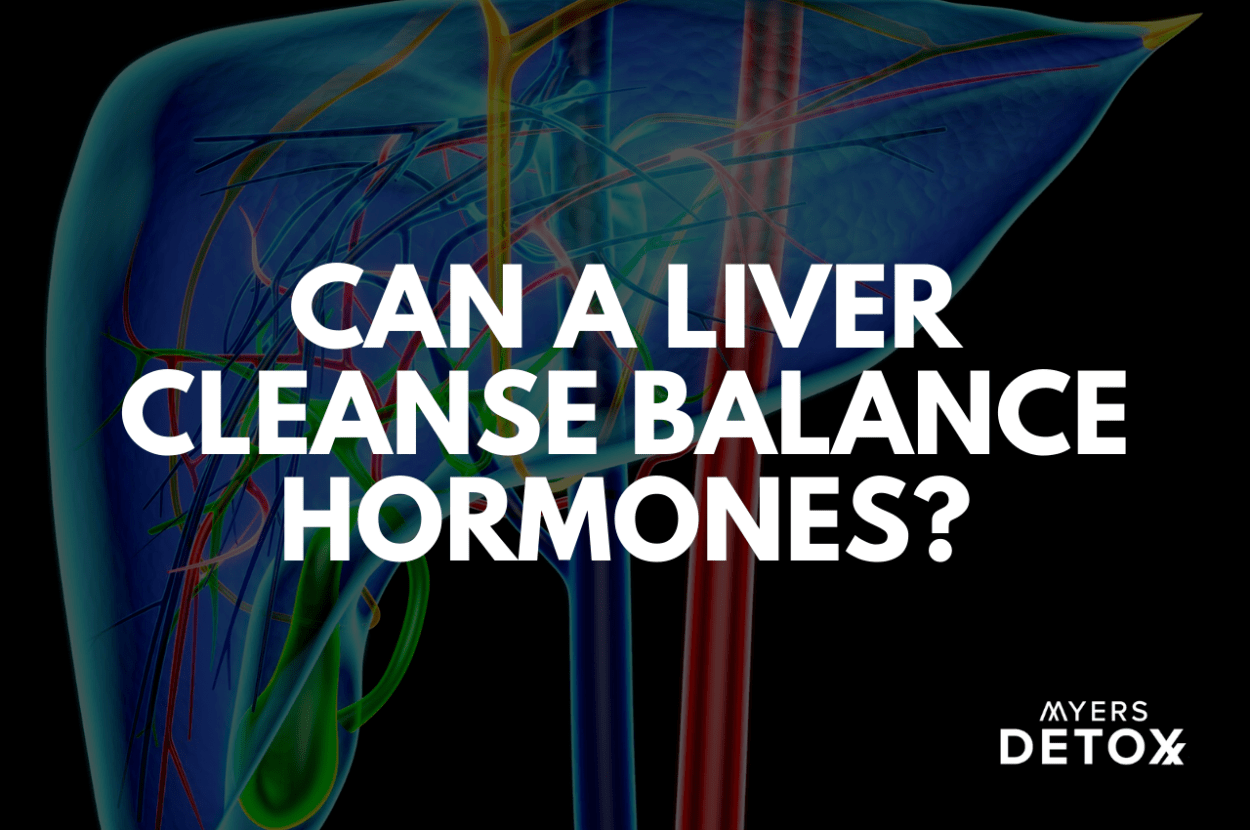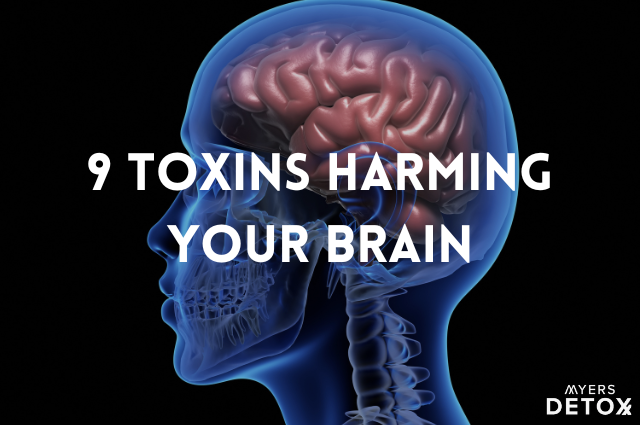Can a liver cleanse balance hormones? Your liver plays a vital role in hundreds of functions in your body. It should, therefore, come as no surprise that this crucial organ contributes to the health of your hormonal system.
This is especially true for women, as our hormones tend to fluctuate more drastically than men’s — creating a higher burden on our supporting organs.
The benefits of liver cleansing are well-known; weight loss, increased energy, improved cognitive function, but again, I ask: can a liver cleanse balance your hormones?
In this article, you’ll learn:
- Your liver’s role in hormone regulation
- The most common causes of hormone irregularities
- Lifestyle and environmental factors to support hormone health
- The best nutrients to support your liver for hormonal clearance
- How liver cleansing can help balance your hormones
Your Liver’s Role In Hormone Regulation
Your liver is one of the busiest and most tasked organs in your body. Essential for not only eliminating toxins, but your liver also plays a key role in balancing hormones as well.
Your hormonal system requires a delicate balance; too many hormones needing excretion or conversion in your bloodstream can be just as damaging as not having enough. Your liver helps your body regulate this tight balance by regulating and eliminating excess hormones (sex hormones, adrenal stress hormones and thyroid hormones) in your blood.
While the elimination of excess hormones is actually a normal part of your body’s regulation process, when you begin to produce too little or too many hormones or absorb endocrine disrupting estrogen mimickers in from the outside world, hormone havoc can ensue.
As hormones and hormone-mimicking metals and chemicals build up in your body, your liver can become overwhelmed. This can eventually lead to liver dysfunction, which in turn leads to even higher levels of hormones in the blood that can’t be efficiently orchestrated or metabolized by your liver.
An overwhelmed liver is one of the key drivers for hormonal imbalance. What’s more, in a state of liver dysfunction, toxins will also build up in your body — which can further drive hormonal imbalances[1].
How Your Liver Balances Hormones
As you just learned, one role of your liver in hormone health is to metabolize excess hormones and remove them from your body. The way your liver removes hormones (and all toxins for that matter) is a two-part process known as phase one and phase two detoxification.
Phase one detox involves enzymes that convert toxic chemicals and hormones into less harmful compounds. You can think of this phase as a neutralizing process where compounds are converted into a more benign form.
The next step in the detoxification process is phase two. During phase two, your liver adds another molecule to the toxin or hormone, rendering it water-soluble. The water-soluble form is now able to be eliminated from your body in fluids like your urine or bile[2].
Both phase one and phase two detox require specific nutrients to support their processes. If your body is lacking these nutrients, toxins can either get stuck in phase one or may not even make it into the detoxification process at all.
Therefore, supporting your liver with key nutrients that support these two phases of detox is crucial for balancing hormones.
Estrogen Dominance and Liver Health
One of the most common hormonal imbalances that women deal with is estrogen dominance. In estrogen dominance, your body is either making too much estrogen and not enough progesterone, you have normal estrogen and low progesterone, or you’re taking in too many estrogen-mimicking compounds from your environment.
Estrogen mimicking compounds (sometimes called xenoestrogens) can be found ubiquitously in your environment. They’re lurking in your personal care products, household cleaners, food, water, and more. They are impossible to avoid.
These chemicals disrupt your endocrine system by mimicking the effects of estrogen in your body. They can interfere with the synthesis, metabolism, function, and binding of natural estrogen, which results in mass confusion for your hormonal balance.
In addition, estrogen-mimicking compounds often affect the function of other sex hormones, creating even more confusion and imbalance in your hormonal system[3].
It’s your liver’s job to detoxify and remove estrogen-mimicking compounds from your body. However, if your liver is already taxed or there are too many of these toxic compounds entering your body on a regular basis a backup can occur. This is one of the reasons why healthy liver function is so crucial to the balance of your sex hormones.
Common xenoestrogens to be aware of include plastic water bottles and food storage containers, pesticides, preservatives in makeup and personal care products and heavy metals like mercury and nickel.
Let’s explore these in more detail:
#1 Pesticides
Unless your produce is labeled organic, you can be sure that it’s been sprayed with pesticides, herbicides and insecticides. Pesticides disrupt your hormonal balance by mimicking the effects of estrogen, fooling your body into thinking you have more estrogen than you really do, disrupting the production of real estrogen in your body, and disrupting the function of hormone receptors[4].
#2 Skincare
Skincare is one of the sneakiest sources of hormonal disrupting chemicals out there. This is due, in part, to the fact that many people don’t realize that the chemicals in your skincare products get absorbed into your body directly from your skin.
Some examples of this are parabens and phthalates. Parabens a group of chemicals that are used as preservatives in cosmetics, toiletries, and skin care. Research shows that parabens can disturb the normal function of estrogen in your body by acting like weak estrogens. This can potentially turn on the growth of hormone-receptor-positive breast cancer[5][6].
Phthalates help to keep color and scent in a product. This aids a shampoo’s scent remaining in your hair when it’s dry. Phthalates are potent hormone disruptors.
#3 BPA (Bisphenol A)
BPA, an environmental estrogen, is commonly found in plastic bottles and food packaging. This synthetic chemical can be leached from food containers, drink packaging and canned foods and enter your body.
While many companies are moving away from using BPAs in their products unless you see the label “BPA-free,” steer clear. But even the BPA free is not safe. It can contain BPS, which is more harmful and estrogenic than BPA!! You have to avoid plastics to avoid hormone disrupting chemicals – a little hard to do in our modern world.
BPA has been associated with various endocrine disorders and diseases such as obesity, breast cancer, diabetes, and reproductive disorders[7].
#4 Heavy Metals
Heavy metals are one of the worst offenders for liver dysfunction, but they also have a direct impact on endocrine function[8]:
- Arsenic is used in wood preservatives, pesticides, mining, and coal-fired power plants, and we’re exposed to this heavy metal through water, food and air. has been shown to produce reproductive abnormalities, similar to the effects of estrogen-mimicking compounds.What’s more, arsenic can negatively impact the health of sperm by inducing cell death, changing the structure of the sperm, and decreasing sperm count. It may also decrease the likelihood of sperm being able to fertilize an egg, resulting in infertility[16].
- Cadmium is used in rechargable batteries, as a pigment in paint, as well as plastic production and is abundant in our soil, water, and food due to pollution.Research shows that exposure to cadmium may lead to premature delivery in pregnancy, potentially due to its harmful effect on placenta health and function. It’s also been shown to have a toxic effect on testes, disrupting androgen hormone production.Cadmium also competes with zinc and copper in fetal development of the liver, brain, kidneys, and intestines[15].
- Lead exposure is more common than you may think. In fact, lead was commonly used in household paint until the 1970’s, and it’s estimated that 50% of the houses people currently live in were built before then.Lead has been shown to inhibit the production of progesterone, estrogen, testosterone and cortisol. High levels of lead are a common culprit for irregular periods, delayed growth and puberty in females and may have a harmful effect of ovarian development. Lead has also been shown to affect the production of sperm in men.
- Mercury exposure is associated with reproductive dysfunction and menstrual disorders and has been shown to be both an agonist and antagonist on estrogen receptors.Research also shows that in women with PCOS, significantly high levels of mercury can be found. This is likely due to the fact that mercury exposure can result in lowered levels of progesterone and thyroid hormone, and increased levels of estrogen. These are all factors that can lead to PCOS and infertility[13].
Signs of Hormonal Imbalance
How do you determine if your hormones are out of balance? For many women, the following symptoms indicate an imbalance in your endocrine system:
- Weight gain or weight loss
- Dry skin, or rashes
- Excessive sweating
- Difficulty sleeping
- Sensitivity to hot or cold
- Changes in blood pressure
- Weak bones
- Depression, anxiety, or changes in mood
- Irritability
- Headaches
- Bloating
- Reduction in sex drive
- Thinning or brittle hair
- Breast tenderness
- Blood sugar imbalance (cravings)
- Changes in appetite
6 Steps For Hormone Balance
If you’re experiencing any of the above symptoms, it may be time to look at your hormone balance. There are both lifestyle and environmental factors that can come into play with hormone balance, and the top five that I would start with include:

#1 Eat Clean
Cleaning up your diet is one of the most important steps to hormonal balance. Pesticides in produce are known endocrine disruptors, but you also need to be aware of where you’re getting your animal products.
Animal feed is often laced with hormones such as estrogen, testosterone, and progesterone to produce larger, more productive cattle. Consuming animal products that contain these compounds can increase the toxic hormonal burden of your body[9][10].
Therefore, when choosing animal products (meat, dairy, and eggs), always go for organic, “hormone-free” or pastured. Even better choose animal proteins that are all of the above – organic and pasture raised.
#2 Use Nontoxic Personal Care Products
There are several companies that are doing a fantastic job of creating healthy, clean, and high-quality personal care products.
Deodorant, make-up, lotion, sunscreen, anything you can think of in the personal care category can be found in a clean version these days. I know it can feel overwhelming to give up your favorite go-to cosmetics, but I promise that the benefits far exceed the risk of switching over.
What you put on your skin gets absorbed just like what you put in your mouth, that’s why personal care products are one of the sneakiest ways that endocrine-disrupting hormones can make their way into your body.
#3 Watch Your Alcohol Intake
In the spirit of keeping your liver functioning optimally, keeping alcohol intake to a minimum is crucial for hormone balance.
This doesn’t mean you can’t enjoy a glass or two of wine on a Friday night, but don’t make it a daily habit. Switching over to liver-supportive teas like dandelion, schisandra, or burdock is even better.
You see, when your liver is dealing with the 911 emergency that is your glass of wine, it’s trying to detox that and break down the sugars in it rather than metabolizing hormones or detoxing heavy metals.
Enjoy occasional wine! We all pick our poisons, but be aware alcohol can definitely contribute to hormone imbalance if it’s a nightly habit.
#4 Filter Your Drinking Water
Drinking water in the U.S. is a landmine of toxic compounds. Birth control pills, testosterone, heavy metals, xenoestrogenic chemicals, fertilizers, you name it can all be found in your drinking water. That’s right! Hormones are in your drinking water!!
People’s drug laced urine toilet water is recycled back into municipal water supplies and cities are not required to test for or filter these hormones from city drinking and shower water. Just like eating clean, drinking clean water is crucial for both your hormonal balance and liver health[11].
#5 Do a Liver Cleanse
I recommend that people do a complete liver reboot at least once a year, with daily liver support to carry you through the rest of the year.
Your liver never stops working for you, but the toxins in your environment never stop streaming in. For so many, this results in a congested, overwhelmed liver that leads to so many unpleasant symptoms, including hormone imbalance.
Through years of my own trial and error with liver cleansing, I’ve distilled the most effective and safe strategies for a complete liver overhaul in my 14-Day Liver Rehab Cleanse.
#6 Take Liver Supportive Nutrients
Aside from avoiding the environmental and lifestyle factors that can throw your hormones into havoc, there are some key steps you can take to support your liver’s role in hormone balance. You can be doing all the “right things” for your hormones, but if this vital organ isn’t able to do its job, you’ll be spinning your wheels trying to get your hormones in check.
Doing a liver cleanse is a crucial step to enhance the health of your liver. However, your liver needs love every day, not just once or twice a year. To maintain the health and function of your liver you need to be providing it with the nutrients it needs on a daily basis.
Liver supportive nutrients include broccoli sprouts, beets, dandelion, burdock, moringa, ginger, and turmeric. These nutrients support the two phases of detoxification that your liver goes through to eliminate toxic burden from your body.
Nutrients that specifically support each phase include:
Phase 1 Support: Green tea, dandelion, curcumin, broccoli sprouts
Phase 2 Support: broccoli sprouts, ginger, moringa, beets
I formulated my Daily Detox supplement to include all of the above foods, with the addition of metabolic, anti-aging, and overall wellness support. This gives your liver a daily dose of love to support its overall function in a gentle and effective way.
#7 Focus On Heavy Metal Detox
Giving specific attention to heavy metal detox is crucial for hormone health as these compounds can be harmful to both your liver and endocrine function[18]. Heavy metals and chemicals can lodge deep into your tissues and fat cells, which means that they require some heavy duty detoxifying nutrients to pull them out and eliminate them from your body completely.
This is why you need to not only take compounds that pull metals and chemicals out of fat and tissues, but also bind to the toxins that have been released from these tissue storage sites. That’s why I created a toxin binder called CitriCleanse.
CitriCleanse is a toxin binder that I formulated to support your body’s ability to gently, but effectively remove heavy metals and chemicals like estrogen-mimicking pesticides with research-backed ingredients shown to clear toxins from your fat and body. This is crucial so that your liver is not dealing with the additional burden of having to filter all these toxins pulled from tissue storage sites and can exit through the kidneys.
Can A Liver Cleanse Balance Hormones?
If hormone balance is something that you want to prioritize in your life, then I highly recommend a full-on liver reboot. When your liver is sluggish, you not only end up with excess toxins floating around, but you will also experience inadequate hormone elimination[17].
An excess of hormones can lead to conditions like estrogen dominance, which in turn can throw the rest of your hormones out of whack — and chaos will ensue.
In addition, the effect of heavy metals on your body can further aggravate the production and balance of sex hormones[18]. The health of your liver, being the primary mechanism of heavy metal detox, is vital for keeping metal levels in check.
By doing a liver cleanse you’ll get your detox channels up and running at full speed, allowing your liver to effectively remove excess hormones and metals.
In addition, using targeted nutrients during a liver cleanse allows you to replenish your liver with nutrients that will keep it working seamlessly and prevent further hormonal buildup. This is why liver cleansing is so crucial to the process of hormone balance.
In addition to balancing your hormones, a liver cleanse will produce benefits like:
- Increased energy
- Clearer skin and eyes
- Better mental clarity
- Better mood
- Stronger immune system
- Better digestion
- Better sleep
- Better oral health and fresh breath
I’ve laid out my years of research into liver health and liver cleansing in a 14-Day Liver Rehab Cleanse that walks you through, step by step, the ultimate liver reboot.
This cleanse includes:
- 3 pre-recorded webinars
- Liver cleansing “how-to” videos
- A library of liver rescue guides
- Top liver support supplements
- Tools you will use for a lifetime to care for your liver
- And more
If you want to learn the ins and outs of how to care for your liver, this cleanse has everything you could possibly need.
 I recommend that people do a complete liver reboot at least once a year, with daily liver support to carry you through the rest of the year.
I recommend that people do a complete liver reboot at least once a year, with daily liver support to carry you through the rest of the year.
Your liver never stops working for you, but the toxins in your environment never stop streaming in. For so many, this results in a congested, overwhelmed liver that leads to so many unpleasant symptoms, including hormone imbalance.
Through years of my own trial and error with liver cleansing, I’ve distilled the most effective and safe strategies for a complete liver overhaul in my 14-Day Liver Rehab Cleanse.
This program is the best of what I’ve learned about detox over the years, skipping the practices that are too hard or ineffective, and focusing on what’s doable and actually produces results.
Takeaway: Live Detox Is Crucial For Hormone Balance
There are several lifestyle and environmental actors that come into play with hormone balance. But above all of these external factors, the health of your liver truly holds the key to healthy hormone function in your body.
Unless your liver is functioning optimally, you’ll never be able to balance your hormones.
Whether you want to rev up your metabolism and fat-burning furnace… turn back the clock on your skin… boost feel-good hormones… have more energy… even transform your sleep…it’s essential to get your liver running in peak form.
That’s exactly what this 2-week cleanse helps you do.
Take care of your liver, and your liver will take care of your hormones.









